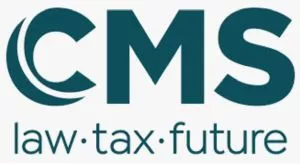- in European Union
- in European Union
- in European Union
- in European Union
- with readers working within the Securities & Investment industries
- within Insurance, Wealth Management and Corporate/Commercial Law topic(s)
On 26 February 2025, ESMA issued Guidelines on the provision of crypto-asset services by a third-country firm at the exclusive initiative of the client under Regulation 2023/1114 on the market in crytpo-assets ("MiCAR") (the "Guidelines").
Where a client established or situated in the Union initiates at its own exclusive initiative the provision of a crypto-asset service or activity by a third‐country firm, the requirement for authorisation shall not apply to the provision of that crypto-asset service or activity by the third‐country firm to that client, including a relationship specifically relating to the provision of that crypto-asset service or activity.
The Guidelines aim at explaining the situations in which a third-country firm is deemed to solicit clients established or situated in the Union. They provide for a broad list of solicitations to clients and prospective clients including various promotional activities, i.a. the promotion, advertising or offering of crypto-assts by any means (internet commercials, brochures, press releases, invitations to events or to trainings, etc). However, educational materials, trainings, and industry events that are purely educational or focused on sharing knowledge about underlying technologies or innovations of the industry should not be considered as solicitation.
There is no reverse solicitation where the solicitation is carried out by the third-country firm itself or by any person acting on its behalf or having close links with the third-country firm, including influencers. Regulated entities in the EU (such as credit institutions, investment firms or payment service providers) must not redirect clients (for instance, via their website) to crypto-asset services provided by a third-country firm.
The criterion of "exclusive initiative of the client" is assessed on a factual basis, that cannot be superseded by contractual arrangements or disclaimers. Third-country firms should have records that track their relationship with the client and, in particular, whether the client has taken the initiative to receive crypto asset services in relation to a new product.
A third-country firm may market crypto-assets or crypto-asset services or activities of the same type in the context of the relationship started at the own exclusive initiative of a given client, taking into account the granular categorisation of such services and activities.
The Guidelines also specify certain supervision practices to detect and prevent the circumvention of authorisation requirements as set out under MiCAR. Thus, competent authorities should (i) monitor third-country firms targeting clients established or situated in the Union or active in the Union, (ii) exchange with other national or foreign authorities and (iii) investigate complaints from clients or information from whistleblowers indicating that a third-country firm might have solicited clients in their jurisdiction.
The Guidelines are supplemented with an Annex, which provides for a non-exhaustive list of examples of circumstances where a third-country firm is likely to be regarded as soliciting clients in the Union.
The Guidelines apply in two months, that is at the end of April 2025.
In relation more broadly to the application of MiCAR in Luxembourg, the Commission de Surveillance du Secteur Financier (the CSSF) has been designated as the Luxembourg competent authority regarding MiCAR. In this context, it has released several Circulars to inform that it integrated EBA and /or ESMA Guidelines regarding MiCAR into its administrative practice and regulatory approach.
Moreover, several delegated regulations regarding MiCAR were published in the Official Journal of the European Union and ESMA released other Guidelines for the proper application of MiCAR.
The content of this article is intended to provide a general guide to the subject matter. Specialist advice should be sought about your specific circumstances.






